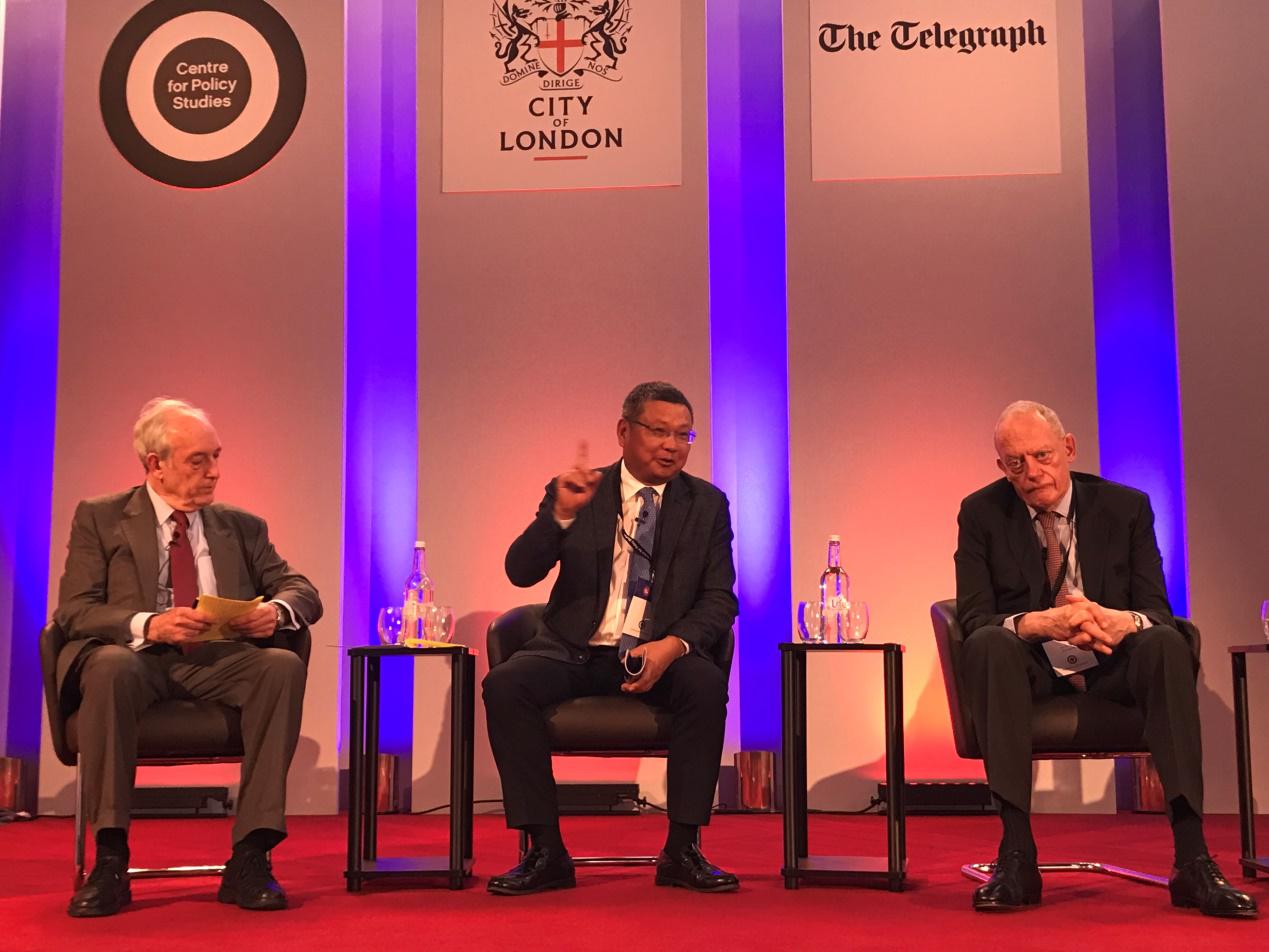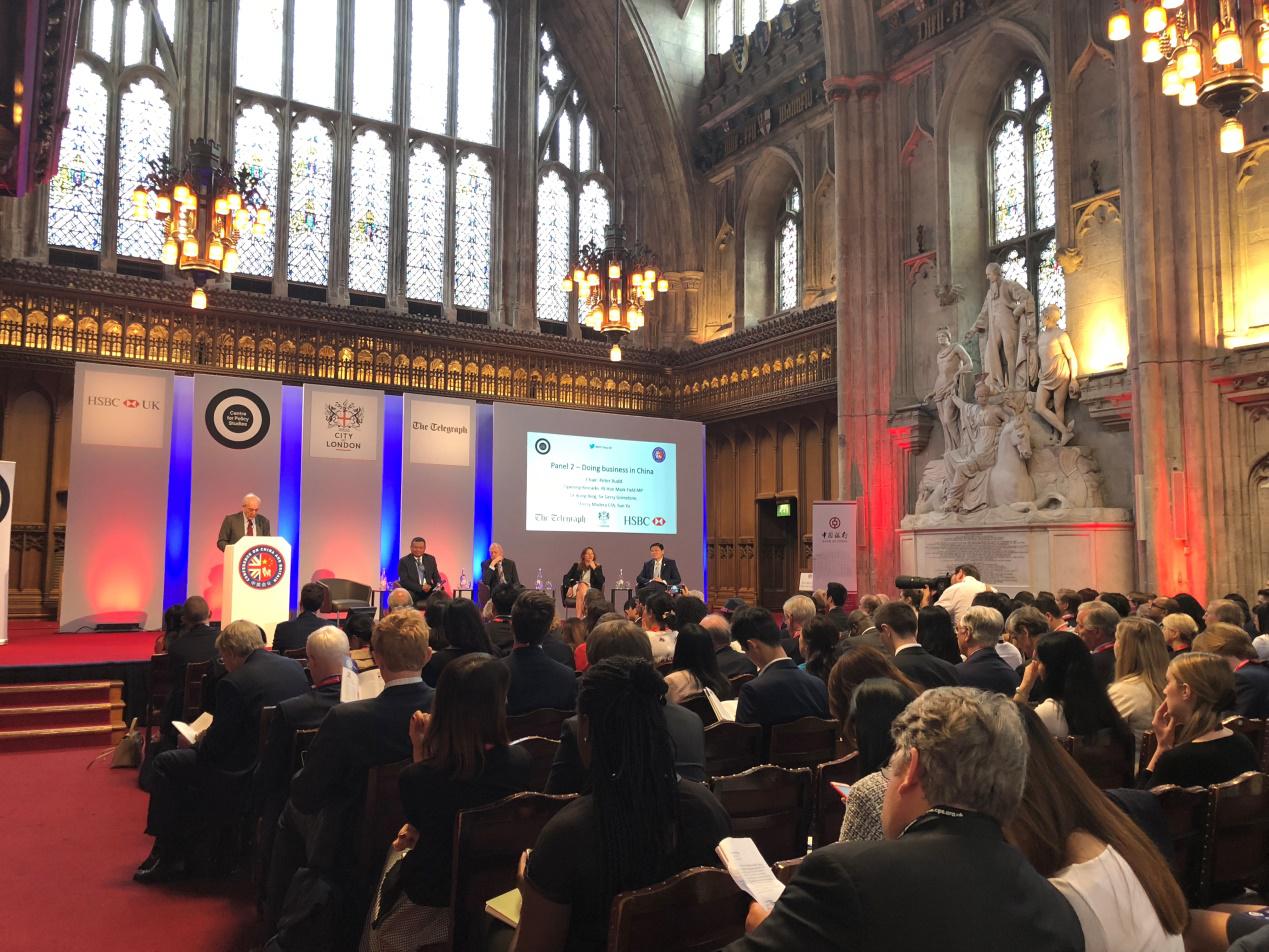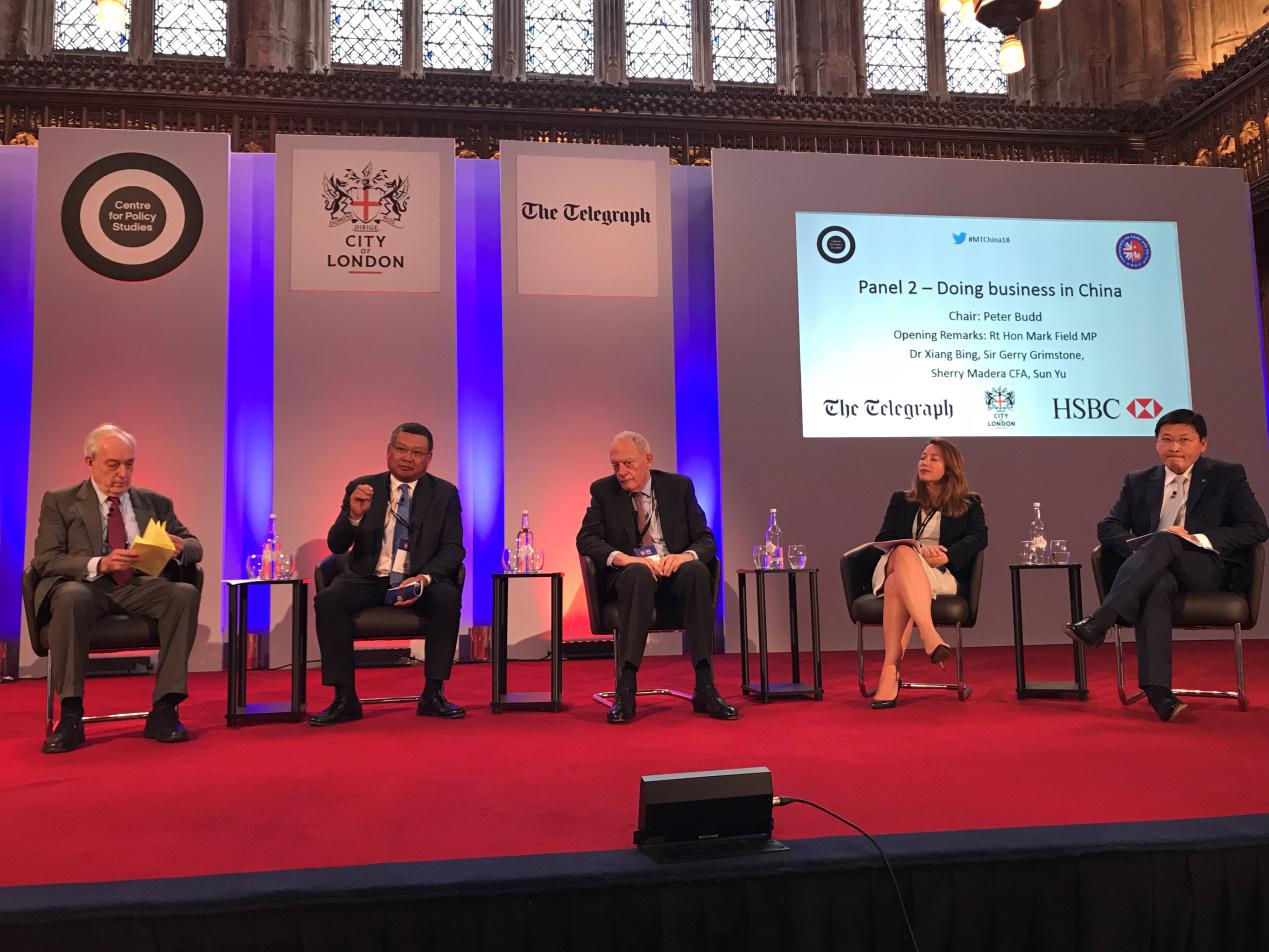CKGSB Dean Xiang Bing delivered a speech at the Margaret Thatcher Conference on China and Britain where he talked about UK’s impact on China’s economic development and what China can offer in the future.
The Margaret Thatcher Conference on China and Britain was hosted by the Center for Policy Studies in partnership with the City of London, HSBC, and The Telegraph at the Guildhall, London on Tuesday, 19 June 2018.

CKGSB Dean Xiang Bing spoke at the Margaret Thatcher Conference on China and Britain
On the panel “Doing Business in China,” Dean Xiang started by sharing an essential teaching of Confucius—harmony and diversity—and explained that all countries should respect their differences and stop trying to come up with one system or solution for all problems in the future.
He cited another Confucius teaching: “In the company of three people, there must be one whom you can learn from,” suggesting leaders should avoid pride and prejudices, and instead be humble and learn from each other.

To conclude the two teachings and give a concrete example on China-UK relations, he said that Chinese economists and scholars appreciate the impact of the UK on China’s economic development. In fact, Dean Xiang explained that China’s success benefited a lot from three tides that came from Britain. The first tide is neoliberalism that came from Lady Thatcher and has shaped China’s reform in a fundamental way. The other two tides can also be traced to Britain, one is a new wave of globalization and the other is the invention of the Internet. Hong Kong’s development is closely tied to Britain, and Shenzhen, a city for high-end manufacturing and innovation, wouldn’t come this far without Hong Kong.

He also said that neoliberalism has run its course in the UK and the US, but it has more room for growth in China’s future, because China has numerous sectors yet to be deregulated. However, China in some ways is also one of the most capitalist countries, as its social welfare is still underdeveloped and China’s Gini coefficient is relatively high, a sign of income inequality. In the future, China will continue to learn from European countries’ social democracy and, in the process, continue to offer opportunities to the UK and European countries, such as disruptions that have made economic development possible. Dean Xiang stressed that the key questions to address in this regard are: “How do you facilitate this wave of disruptions” and “How do you manage this income, wealth inequality and diminishing social mobility?”
At the end, Dean Xiang brought the discussion back to the importance of the humanities. “The humanities are far more important than management, process, governance, finance and other functions,” Dean Xiang emphasized. “Because the humanities will help us to better understand each other.” He explained that the biggest challenge if China sustains globally is the “valued connection.” “In order to do that well, it is the humanities, and not technology or management, that will play a key role. So, the sense of humanity will help us to broaden our horizons, better understand each other and appreciate our respective positive aspects.” This is primarily the reason why CKGSB pioneered the introduction of the humanities in business curricula in 2005, offering courses on history, religion and philosophy in both degree and non-degree programs to broaden business executives’ perspectives.